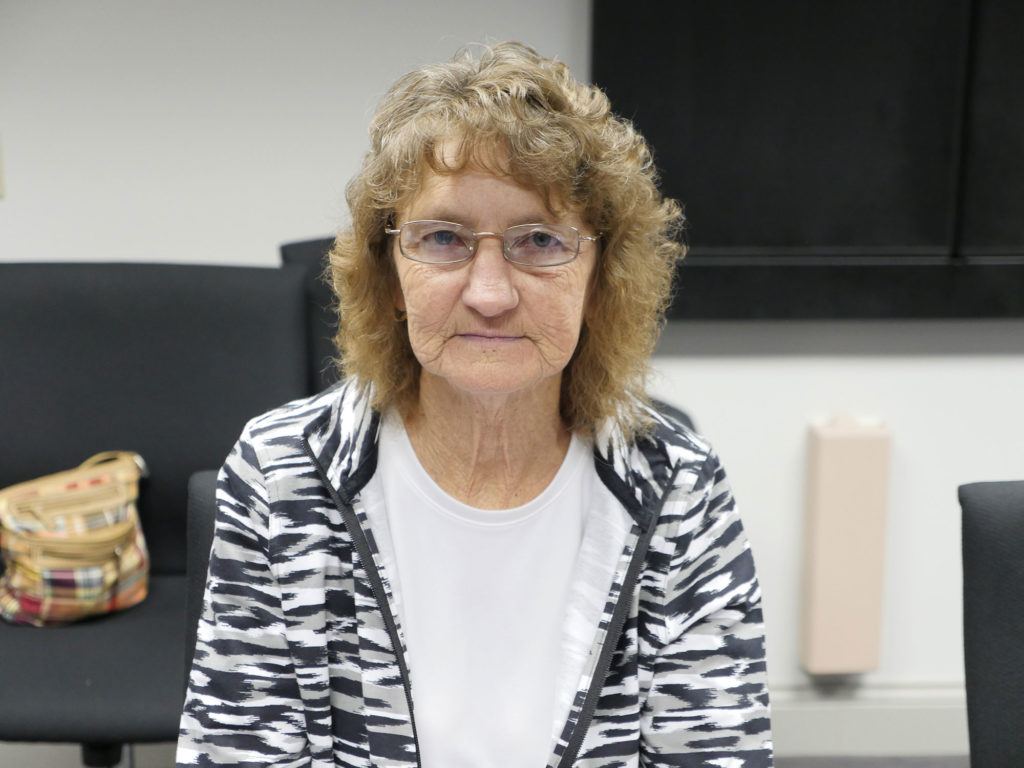
Meet Patsy Perdue
At 67, Patsy Perdue has been many things including a cabinet maker, a dairy farmer, and most recently a homebuilder. The latest title came about because Patsy found herself living in a mobile home with utility bills as high as $350 a month. She was ready for a change, so when she noticed the new homes being built in her area, she gave Fahe Member Kentucky Highlands Investment Corporation (KHIC) a call.
“After I was approved, the builder came to my trailer and told me ‘My name is George Page and I’m going to help you build a house.’ My first response was that I didn’t know how to build a house but he told me ‘if you can drive a nail, you can build a home.’ And he was right.”
Patsy worked with KHIC through the USDA Mutual Self Help Housing Program which provides grants to organizations that create local self-help housing programs. These programs bring together low-income families who are willing to not only work on the construction of their own homes but also the homes of the other participants. The organization that receives the grant (in this case KHIC) provides the technical experience and supervision while the families provide approximately 65% of the construction labor.
“I was raised on hard work and I still work hard today. My daughter recently had to have surgery so I drove to her house and carried in wood. When it was time to lay floors or lift heavy timbers, I was right there, ready to learn and ready to work.”
When Patsy first joined the program she was the first and last person on site no matter the house. She had never built walls, placed insulation, or installed plumbing before, but she tried and learned and she believes that since she can do it just about any other person can as well.
“I believe that when people can build their own house, they have a better appreciation of the process and more pride in what they own. For example, I know a couple who have four kids who lived in a rental trailer that was in real bad shape. The windows were broken out, it had missing underpinning, and lots of other bad conditions. They went through the program too and I know that their life is better for it and they are grateful to have a new home.”
According to Patsy, rental trailers like the one her friends lived in are pretty standard living spaces in the area. In fact, Patsy receives lots of questions because her home sticks out like a sore thumb. Many people in her town don’t believe they can have a nice place to live. Without hesitation, Patsy says she invites in anyone who has questions because she wants people to see what is possible. The program is about coming together and helping each other and for her that extends past just swinging a hammer, it also involves education and encouragement.
“I became so dedicated to the work with the houses that KHIC actually called me and asked me to join their board. I try to attend every ribbon cutting and ceremony we have. I’m so enthusiastic about it that I was even asked to speak in Washington D.C. about the Mutual Self Help Program.”
Getting into a well-built and efficient home has allowed Patsy to save money and dedicate time to her friends and family who need her. She is a staunch believer that anyone who is given the chance can make a difference in their life.
Thanks to investments from organizations like yours, Fahe is able to provide its members with training and technical assistance to make these types of programs work in our region, as well as the political capital to ensure that they continue to exist at a governmental level.
“It is a good program,” said Patsy. “I would advise any family who needs a home to join in. You don’t just get a home, you also help others get a home and you meet lots of good people who are care and willing to work for others.”
